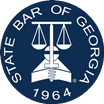Skilled Drug Conditional Discharge Attorney in Jasper County, Georgia

When arrested for drug possession crimes, first-time offenders in Georgia have an option that will keep them out of jail and place them into a drug treatment program instead. The purpose of the conditional discharge program is to encourage treatment and break the recidivism cycle that drug-induced behaviors often cause.
The conditional discharge program is only available once to a first-time offender charged with drug-related crimes, and this opportunity should be considered in consultation with your lawyer to determine if it will work for you. Successful completion of the conditional discharge program means a clean criminal record going forward.
Michael Fulcher Law knows how to guide you through any decision to enter a conditional discharge program. This option is open only once to a first-time drug offender or minor facing alcohol possession charges. In choosing this option, you give up the right to contest the legality of the underlying arrest and charges. Therefore, any decision to consider conditional discharge should include an assessment of the strength of the prosecutor’s case against you. That’s why you need a skilled and experienced drug conditional discharge attorney by your side as soon as possible after arrest.
Michael Fulcher Law has over 15 years of experience as a prosecutor, public defender, and privately retained criminal defense lawyer in Jasper County, and the surrounding areas of Morgan, Greene, Putnam and Taliaferro Counties. Our primary office is in Madison, Georgia, with a secondary office in Monroe, Georgia. We can guide you through an evaluation of the prosecutor’s case, what’s best for you personally, and tailoring the conditional discharge program to resolve your case in a way that protects your liberty and continued rehabilitation.
What is Conditional Discharge?
Georgia law offers residents facing first-time drug-related charges with an opportunity to avoid jail or prison time and enroll in appropriate rehabilitative services. The conditional discharge program provides that a first-time offender plead guilty to the charges of possession and/or use of narcotic drugs, marijuana, stimulants, depressants, or hallucinogenic drugs, or non-violent property crimes related to drug use and addiction, in exchange for entering into a drug treatment program with accompanying supervision. The conditional discharge program can last for 3 years for possession charges and up to 5 years for non-violent property-related crimes.
During this period of supervision, the guilty plea is suspended, although hanging over you in the event that you violate any of the rules of probation. A first offender might be enrolled in a comprehensive drug rehabilitation program, detox program, counseling, therapy, or medical treatment, if needed, for a period of not more than 3 years. You will have to submit to random drug tests throughout the supervisory period. The purpose of the diversion from prison is to give first-time offenders the information and methods they need to end their addiction and maintain a healthy lifestyle.
Any failure to comply with the terms of conditional discharge can mean activating the guilty plea you entered when you joined the conditional discharge program and maximum sentencing to jail or prison.
For Georgia residents with H1B visas or immigration status issues, a guilty plea and diversion into conditional discharge can trigger federal enforcement actions, including deportation.
That’s why you need an experienced conditional discharge lawyer to help you make the right choices when facing the option of conditional discharge.
How Does Conditional Discharge in Georgia Work?
Participation in a conditional discharge program requires that you enter a guilty plea in court, thus waiving all defenses to any of these charges. In exchange for admitting to the charges, the court will place you in probation for up to 3 years for possession charges or up to 5 years for non-violent property-related charges stemming from drug use or addiction. While on probation, you will be required to participate in drug rehabilitation, a detox program or medical treatment, counseling, therapy, and/or submit to periodic drug testing. By coming clean and staying clean, you earn the right to eventually gain a clean criminal record.
Although you must admit to guilt as a condition of entering the program, that guilty plea is suspended during the duration of your probation so long as you continue to comply with all the terms imposed by the court. Any relapse might mean immediate revocation of probation and a maximum sentence in jail or prison for the underlying possession or property-related crimes. However, successful completion of the conditional discharge program means a clean criminal record, and hopefully, a healthier lifestyle.
How to Qualify for Conditional Discharge in Georgia?
To qualify for conditional discharge, you must be a first offender on drug-related charges, including possession or use of narcotics, marijuana, stimulants, depressants, or hallucinogenic drugs or a minor charged with illegally possessing or trying to obtain alcohol. A first offender minor, under the age of 21, who has been charged with purchasing, attempting to purchase, or possessing alcohol, or misrepresenting one’s age to buy alcohol also qualifies for the conditional discharge diversion program.
A prior criminal offense does not disqualify you. A clean criminal record is not a prerequisite for enrollment in conditional discharge. You still can participate in a conditional discharge diversion program even if you have been charged previously for non-drug-related offenses and even convicted on other charges. This must be your first drug offense.
You must plead guilty to the underlying possession or use charges, or non-violent property-related drug charges, such as shoplifting or theft. In pleading guilty, you waive your constitutional rights to defend yourself. Waiving any defenses is why it is so important that you retain a skilled and competent conditional drug conditional discharge attorney who can review the police reports and prosecution’s case against you to determine whether there are possible legal or factual ways to fight the prosecution’s charges. In choosing conditional discharge, you give up your rights to contest the prosecution’s case in a pretrial or suppression hearing, give up your rights to a trial by jury or judge, the right to the presumption of innocence, and the right to either testify or remain silent.
CALL US NOW
FOR A FREE CONSULTATION
Facing legal challenges, whether it’s a DUI, criminal charge, or navigating traffic-related offenses, requires a skilled advocate. Turn to Morgan County’s Michael Fulcher Law for a blend of legal expertise and unwavering client service from a former Georgia prosecutor. Discover the optimal legal solution for your situation by calling our criminal defense law firm at (706) 438-1555 or reaching out online. Schedule your free consultation today and gain a clearer path forward.
What Happens After Completing Georgia Drug Conditional Discharge?
Once the conditional discharge program is completed, and all the terms of probation have been met, you will be discharged from probation. The drug-related charge against you will be dismissed. Your criminal record is clean, and your participation in a conditional discharge program cannot disqualify you from employment or appointment to office in either the public or private sector.
However, failure to comply with any of the terms of conditional discharge can be devastating. The terms of conditional discharge can be numerous: drug treatment programs, DUI school, restitution, and random drug testing. Any deviation might result in the court activating your prior guilty plea and sentencing you to the maximum jail or prison term for the underlying drug offenses. Obviously, that means incarceration and a permanent criminal record, with all the consequences.
Get your legal representation today with a skilled Drug Conditional Discharge Attorney in Georgia
Facing a drug possession or non-violent drug-related property prosecution is daunting, especially as a first offender or minor without any exposure to the criminal justice system except what you have seen on television and in the movies. Only a skilled and experienced criminal defense lawyer can help you through the maze of decisions: whether to contest the underlying drug or alcohol charges or plead guilty and enter the conditional discharge alternative to incarceration.
Hiring the right skilled drug defense lawyer in Georgia can ease the stress of facing a criminal prosecution, guide you to decide a course of action that is best for you, and fully protect your freedom and rights. You want experience, skill, and competence. That’s what Michael Fulcher Law offers! Call or email now for a free consultation at either of our conveniently located offices in Madison and Monroe.
Frequently Asked Questions
AMAZING WORK
“Mr. Fulcher has been tremendously helpful with my case. Since hiring him he has consistently returned my calls as quickly as he can. We discussed an ideal outcome, and I set about doing exactly as he said. Following his advice we were able to get a very favorable outcome. He is always quick to answer any questions, and has stayed very engaged with me throughout this ordeal. Michael provides excellent counsel, and I would recommend him to anyone!”
— TOM




